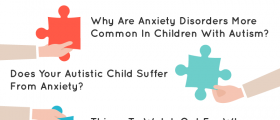
Dyslexia is one's inability to learn how to read and spell. It is not a separate problem affecting an individual, who is usually a child. Rather, it is connected to various other, underlying, problems including some kind of psychiatric disorders like ADHD, the child's intelligence levels, presence of certain chronic diseases like diabetes mellitus, bullying at school or other forms of abuse or disability of the child to communicate with his/her peers. All these factors may trigger dyslexia in a child.
Additional Information on Dyslexia
About 5% of overall population, including both children and adults suffer from dyslexia. The main cause of dyslexia is late or absent development of crucial cognitive abilities. Low levels of intelligence can also be a possible trigger of this problem. However, these cases are rare and, usually, dyslexic children are not mentally impaired and can function normally throughout their lives, being successful and productive, finishing grammar schools, universities etc.
Diagnosis of Dyslexia
In order to diagnose and classify dyslexia, selective literature review and guidelines of the German Society of Child and Adolescents Psychiatry, Psychosomatics and Psychotherapy is used. Additionally, International Classification of Mental Disorders and the Diagnostics and Statistical Manual of Mental Disorders may be used during diagnosis of spelling disorders and dyslexia. Some countries, like Germany, do not consider dyslexia to be a disorder or illness, blaming it on education and upbringing methods.
Treatment and Prevention
Up to 60% of people who suffer from dyslexia, show signs of other mental conditions like depression, anxiety and attention deficit. Once the necessary tests are done and a child is diagnosed with dyslexia, possible treatments are prescribed. Two main strategies guide the treatment. Firstly, the child is assisted during learning of writing and spelling. Secondly, the child is to undergo psychotherapy and to get all the support necessary while in the kindergarten or at home.
This kind of treatment has proven itself quite productive, helping many children improve their writing and spelling skills, partially or almost completely overcoming dyslexia.
Even though recent researches have shown that dyslexia may be connected to one's genetics or neurobiological factors, proper treatment and support is necessary nevertheless. Once a child is diagnosed with this learning problem, he/she needs help during the process of writing and spelling acquisition. Also, all the underlying psychological issues which may correlate with dyslexia need to be taken care of through psychotherapy or other such treatments. This kind of care and mixture of treatments is bound to help children overcome this learning disability or manage to live with it successfully.

















Your thoughts on this
Loading...